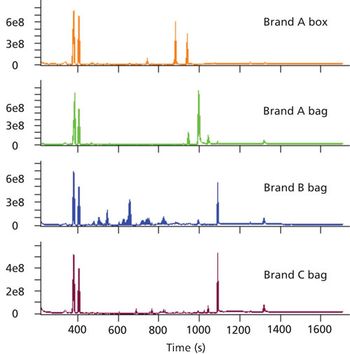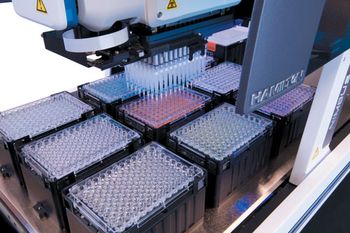
Special Issues
In this study, general extract screening of food storage materials was done with nontargeted analytical methods to understand what analytes could potentially leach into food or beverages. GC and mass spectral deconvolution effectively separated analytes within the complex mixture and TOF-MS provided full mass range spectral data for identification. This workflow can be used for confident characterization of components present as extractables from food packaging materials.






